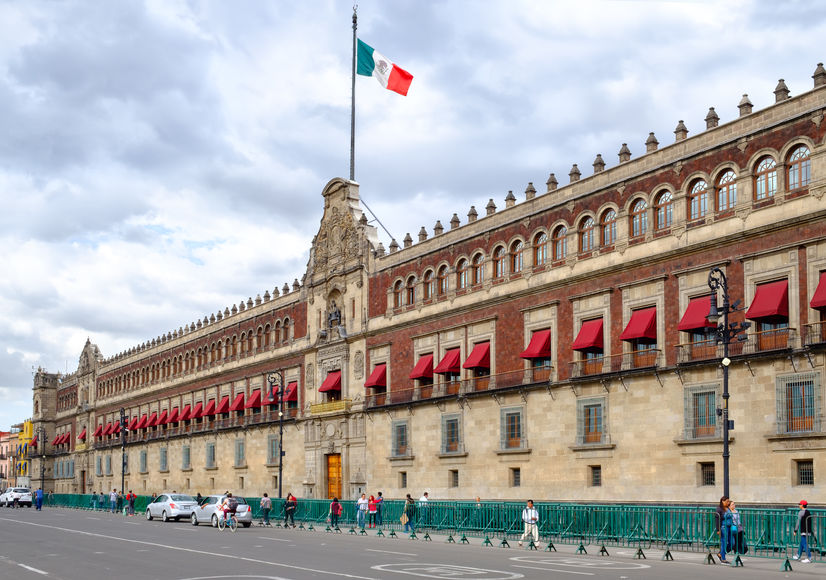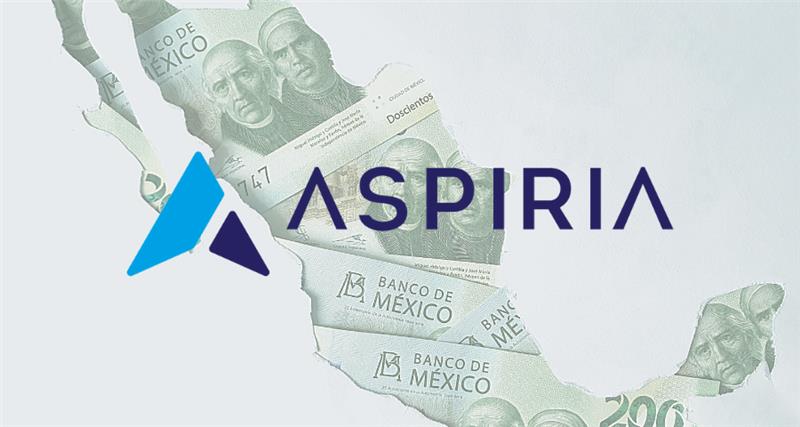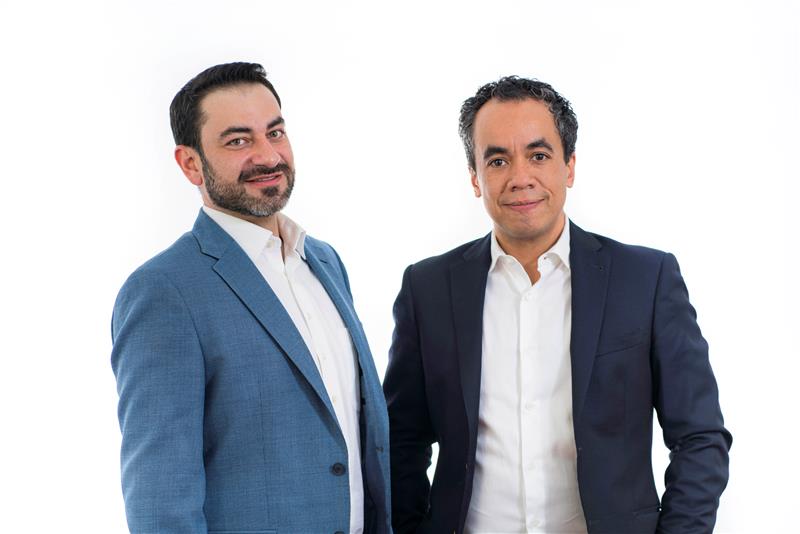Mexico
Mexican Small Business Lender Buys a Bank, Eyes United States
June 18, 2021 Change is happening south of the border. Online lenders and alternative funders are growing across Mexico much the same way as elsewhere. This week, Credijusto, an online small business lender based in Mexico City, acquired Banco Finterra, marking the first time that a fintech has acquired a bank in the country.
Change is happening south of the border. Online lenders and alternative funders are growing across Mexico much the same way as elsewhere. This week, Credijusto, an online small business lender based in Mexico City, acquired Banco Finterra, marking the first time that a fintech has acquired a bank in the country.
According to Reuters, “Credijusto aims to ramp up services for Mexican companies that sell to the United States, and build a business for U.S. companies that do cross-border trade in Mexico and beyond in Latin America.”
Mexico also has more than 6 million small businesses, a market that is effecively 4-6x larger than Canada’s.
Prior to this, Credijusto had already collectively raised $400M from Goldman Sachs, Credit Suisse, Point72 Ventures, New Residential Investment Corp., Kaszek, QED Investors, John Mack, Ignia, Promecap and LIV Capital.
“The acquisition of Banco Finterra seeks to create the first truly digital banking platform for Mexican companies in the future,” commented Allan Apoj, co-CEO of Credijusto. “This transaction marks an important milestone in Mexico and the region, and we are proud to be revolutionizing the future of banking in Latin America.”
Apoj’s partner, co-CEO David Poritz, hinted to Reuters that in a couple of years it may consider the acquisition of an American bank as well.
Earlier this year, Mexico began to allow fintech companies to obtain a Financial Technology Institution license.
Estamos muy orgullosos de revolucionar el futuro de la banca en México con la adquisición de Banco Finterra y de beneficiar así a las empresas a través de productos financieros de nueva generación. Conoce más de este gran logro: https://t.co/pbGBVyo04p pic.twitter.com/A32vaHDOB1
— Credijusto (@credijusto) June 15, 2021
Fintech Law Goes into Effect in Mexico
March 9, 2021 It will be a big year for fintech in Mexico, with at least 93 fintech firms in the process of obtaining a Financial Technology Institution (FTI) license.
It will be a big year for fintech in Mexico, with at least 93 fintech firms in the process of obtaining a Financial Technology Institution (FTI) license.
Lawyer Rene Arce Lozano, an advisor with the international Hogan Lovells law firm, wrote about the new “fintech law”; the first of its kind in Latin America. Many firms will see an authorization in the coming year from the National Banking and Securities Commission.
“Over the last few years,” Lozano wrote, “the fintech ecosystem in Mexico has evolved to become one of the most developed in Latin America.”
Mexico, home to 441 startups- the largest fintech hub in central America- passed the law in 2018 that went into effect this past year 2020, nurturing the creation of dozens of Mexican neo banks and electronic payments firms.
The new law sets regulations for payments and open banking and has stirred up excitement for fintech enterprise in the country as a whole. But according to Financial specialist Stefan Staschen, the law isn’t the cure-all.
“The law covers only two types of fintech companies,” Stashen wrote. “It does not provide regulatory guidance for other services, such as fintechs offering balance sheet lending, big tech companies launching financial services, investment services other than crowdfunding, or central bank digital currencies.”
The new law may be a great start, but it is the first step to broader regulatory approval to the diverse financial tech world. Staschen works at the CGAP– an international advocacy group based in Washington that aims to extend financial inclusion throughout the world.
Aspiria Co-Founder On Successful Funding in Mexican SME Space: Still Lots of Room to Grow
December 5, 2020 After 38 years, Guillermo Hernandez has seen the boom and busts of the Mexican financial markets, weathering seven recessions in all, he said. But until 2020, he had never led a company through a pandemic.
After 38 years, Guillermo Hernandez has seen the boom and busts of the Mexican financial markets, weathering seven recessions in all, he said. But until 2020, he had never led a company through a pandemic.
Aspria, Hernandez’s online lending firm, had planned on completing a Series A from international investor Oikocredit, but the deal went into the icebox as the cases came.
“In the beginning of the year, things were doing very well in Mexico, the whole economy was booming,” Hernandez said. “Out of nowhere, we got hit by the pandemic. And the transaction that we were supposed to be closing in March 2020, our investor said, ‘you guys are fantastic, but there are too many unknowns.'”
But due to Aspiria’s resilience and the fact that they went into 2020 with a rock-solid business, Hernandez said Oikocredit decided to complete the investment deal. Aspiria was growing and profitable, and though it was unclear if the markets were going to fall apart, Hernandez said he and his team put the nose to the grindstone and worked through it.
Oikocredit is a worldwide cooperative that provides loans and investments to promote financial inclusion while empowering people by improving livelihoods. That vision is what Aspiria aims to accomplish as an SME lender, Hernandez said, helping businesses access funds to grow.
The Mexican financial space has ample room for growth, and Hernandez said Aspiria is one of the first alternative business lending firms to capture the market.
 Hernandez said the banking world in Mexico is twenty years or more behind the US, and he founded Aspiria to bring some change to the financing space.
Hernandez said the banking world in Mexico is twenty years or more behind the US, and he founded Aspiria to bring some change to the financing space.
“The whole financial services industry, I mean it’s light-years behind the US,” Hernandez said. “I saw that the way that people would do the underwriting, the way that people provided financing for small businesses was just so outdated; it was more of an old school market here. I decided there was this huge opportunity for the market.”
For example, Mexico has a third of the US population, but only 30 banks to the 7,000-10,000 the US has. That population is also a younger demographic than up north. In Mexico, the average age is 27 (It’s 38 in the US); Hernandez said: the Average Mexican is trying to establish themselves and reach the middle class, young, educated, and ready to start a business.
 Hernandez has been working in finance all his life, starting in Mexico as a banker and consultant for new financial companies before leaving to get his MBA on an HSBC scholarship in Manchester, England. He worked for a time in financial services there before joining a payment startup in the US, where he found his love of startup tech culture.
Hernandez has been working in finance all his life, starting in Mexico as a banker and consultant for new financial companies before leaving to get his MBA on an HSBC scholarship in Manchester, England. He worked for a time in financial services there before joining a payment startup in the US, where he found his love of startup tech culture.
“It was my first exposure to technology, and I was completely amazed. I fell in love with it,” Hernandez said. “At that moment, I was actually thinking about changing careers. I was completely fed up with financial services because it’s boring sometimes. I thought it was not sexy anymore.”
Co-founding Aspiria, Hernandez went on to become the major funder in the space. He said there is so much demand for capital in a standard year that his firm can see 100% year-over-year growth. Even in a pandemic, his firm received a confident investment that will go directly toward building the shop, scaling up funding, hiring, and aiming toward a firm that will one day put it on par with the rest of North America’s leading alternative finance firms.
Oikocredit Expands Its Commitment to Mexican SMEs With Investment in Aspiria
December 4, 2020 Aspiria (www.aspiria.mx), a digital lender targeting underbanked small and medium enterprises (SMEs) in Mexico, has completed an important Series A funding round with participation from social impact investor and worldwide cooperative, Oikocredit.
Aspiria (www.aspiria.mx), a digital lender targeting underbanked small and medium enterprises (SMEs) in Mexico, has completed an important Series A funding round with participation from social impact investor and worldwide cooperative, Oikocredit.
The Series A closing also saw follow-on investments from Aspiria’s current shareholders. The proceeds from the capital round will strengthen Aspiria’s financial capability to support Mexican SMEs.
With its investment in Aspiria, Oikocredit continues its commitment to support SMEs in Latin America, as Oikocredit sees SMEs as playing an important role in areas such as job creation.
Aspiria began operations in 2015 and has lent thousands of loans throughout Mexico. The institution has leveraged digital technologies, data analytics and high-quality service to support the financial needs of Mexican SMEs.
Guillermo Hernandez, CEO and cofounder of Aspiria, commented: “At Aspiria we are very excited to have Oikocredit onboard. SMEs have faced big challenges due to the pandemic and are in need of great financial services. Oikocredit’s investment is an acknowledgement of the tremendous potential of the Mexican SME sector. We look forward to continuing to serve a multitude of SMEs and helping create thousands of jobs in the country”.
Rodrigo Villalta, Equity Officer at Oikocredit, said: “At Oikocredit, we are proud to become shareholders of an institution whose mission is to provide financial support to SMEs that have been typically excluded from the formal financial system”.
“Mexican SMEs are key contributors to employment generation and economic development. We are happy that we can contribute towards building stronger social impact in the country by supporting access to the formal financial system for Mexican SMEs.”
About Aspiria
Aspiria works to increase access to capital to small businesses. Through our platform and the use of statistical credit origination models, we make it fast and simple for the small business owners who have been shunned by the traditional banking system, to obtain financing to continue growing their business.
For more information see: www.aspiria.mx
About Oikocredit
Social impact investor and worldwide cooperative Oikocredit has 45 years of experience funding organisations active in financial inclusion, agriculture and renewable energy.
Oikocredit’s loans, equity investments and capacity building aim to enable people on low incomes in Africa, Asia and Latin America to improve their living standards sustainably. Oikocredit finances close to 689 partners, with total outstanding capital of € 856 million (September 2020).
For more information see: http://www.oikocredit.coop
Note for editors
For more information or to request an interview, please contact Leyda Mar Blanco, Marketing Manager, Aspiria, press@aspiria.mx
Libertad 1966, Col Americana, Americana, 44160 Guadalajara, Jal., Mexico
New Mexico Bill Would Allow State Employees to Repay Loans Via Paychecks
January 15, 2018 Proposed legislation would enable New Mexico to offer small loans to state employees that are paid back via deductions from their paychecks.
Proposed legislation would enable New Mexico to offer small loans to state employees that are paid back via deductions from their paychecks.
Put forth by Democratic state Senator Bill Tallman, the bill would put a 30 percent ceiling on interest rates for loans obtained via the program and limit repayment to 12 percent of gross salary or wages.
According to the Associated Press, Tallman says the bill is aimed at lowering debt burdens on state workers.
Should it pass, Tallman’s initiative would serve as another step for the state in its current battle against predatory lending tactics. As of this month, small lenders in New Mexico are held to a maximum of 175 percent interest on all loans finalized from January 1, onward.
Doug Farry, executive vice president of Employee Loan Solutions Inc., which deploys the employee lending service, True Connect, believes such a strategy can prove successful at the state level.
“It’s a benefit program,” said Farry while discussing the bill. “There’s no reason why it can’t work for a state government as well as a county or city.”
Aimed at empowering workers that face obstacles when applying for credit via traditional avenues, True Connect mainly serves private employers but has seen increased interest in the public sector. This includes government organizations such as Santa Fe Public Schools and others within the state of New Mexico.
At no cost to their participating employer and without submitting a credit score, workers can sign up for small loans via the company’s website.
Typically the funds are deposited with in one business day, and the loan is repaid over the course of 26 paychecks at a flat rate of 24.9% interest.
New Mexico’s decision regarding the practice is yet to be determined, but should the bill pass, the state may soon have followers.
Farry says that True Connect is currently in talks with multiple state governments about including a similar system in their benefits package.
Business Lending in Mexico – From the Front Lines
January 20, 2016 It’s no secret that the financial technology (FinTech) industry has exploded and its effects are being felt around the world. With its epicenter in the US (arguably the UK), it quickly caught on in other major markets like Europe, Australia and Canada. The main narrative for the FinTech industry plays as follows: First, a huge local market has incumbents (local banks), which make it hard for the local population to move or obtain capital (payments and loans, respectively). Then, a bunch of clever people arm themselves with tech, tools and capital to come up with a better solution than the incumbents in their markets; and as people in the US are looking west, east and north to see how this tune plays out in different markets, I have seen how the FinTech phenomenon is growing strongly down south, here, in Mexico.
It’s no secret that the financial technology (FinTech) industry has exploded and its effects are being felt around the world. With its epicenter in the US (arguably the UK), it quickly caught on in other major markets like Europe, Australia and Canada. The main narrative for the FinTech industry plays as follows: First, a huge local market has incumbents (local banks), which make it hard for the local population to move or obtain capital (payments and loans, respectively). Then, a bunch of clever people arm themselves with tech, tools and capital to come up with a better solution than the incumbents in their markets; and as people in the US are looking west, east and north to see how this tune plays out in different markets, I have seen how the FinTech phenomenon is growing strongly down south, here, in Mexico.
Mexico’s FinTech market is made up of the same parts as in the rest of the world. It has huge potential, but surprisingly only few people know about it. With roughly a third of the population of the US (123 million people), and an economic value similar to that of Australia and Canada, Mexico´s local market is in dire need of financial services. In our company’s market, domestic credit represents a meager 31% of GDP[1]! It’s 69% in Brazil by contrast. The USA has a startling 194%. This means that the Mexican private sector is not receiving enough capital in the form of financial products from local financial institutions. The same phenomenon exists in the payments space. For example, in the point of sale (POS) industry, there are currently 8 POS per 1,000 people in Mexico. The US has more than double that at 21 POS per 1,000 people, and Brazil has 3x at 24 POS per 1,000!
Regarding the incumbents, the banks, Mexico is known as the land of monopolies. While in the US there are literally thousands of banks, in Mexico, there are just over 40 banks, with the top 20% holding close to 80% of the market and its profits. Furthermore, Citibank’s and BBVA´s Mexican operations are some of their most profitable worldwide. Large banks like these enjoy extraordinary profits, and have been slow to adapt to new technological trends, service niche markets and provide services which could cannibalize bank revenues. After all, why would a monopoly innovate if it holds most of the market in its hands?
And then there are the people trying to solve this problem. Many Mexicans travel to study in the world´s top graduate programs and return to Mexico to act on what they learned. Domestically, Mexico churns out 3 times as many engineers per capita than US universities do. So currently there is a boom in the number of start-ups in Mexico[2]. And as start-ups tend to do, they are targeting one of the largest and hairiest problems this country has to offer: Financial Services. As a result, the likes of “500 Startups”, “Tech Stars”, “Village Capital” and “Y-Combinator”, and several Silicon Valley VC funds have turned their attention south. Several Mexican start-ups have been raising increasingly larger rounds from local and US investors to quickly tackle the opportunities in the loans and payments spaces.
These Mexican companies are developing solutions for the national problems and they know how to do it with the local culture in mind. Even though the US and Mexico share one of the longest borders and a huge migrant flow, they have developed at different speeds, which present different challenges. Two examples of this divergence: The FICO credit score, created in 1970s in the US, barely made its way down to Mexico some 4 years ago. However in terms of regulation, Mexican banks have been quicker to meet regulatory compliance (Basel I/II) than most of their US counterparts[3]. So the new players up to bat here at home, the online lenders, merchant lenders, mobile POS, remittances, bitcoin exchanges, peer-to-peer market places and the like, are raising capital both locally and abroad to create the technology to service the large Mexican financial services market. And in many cases, they are trying to get the formula right to create a beachhead to jump into a larger and broader international Latino market.
—
Footnotes
[1] – In other words, how much capital is being provided by all the private financial institutions in the country to all the private interests (consumers and companies) in comparison to the GDP. A lower number means that the private sector is not providing enough capital to match the countries production. A higher means the private sector is matching or exceeding the capital needs of the private interests.
[2] – A few months ago “The Economist” made a small homage on the Mexican start up scene – http://www.economist.com/news/business/21647624-nascent-tech-hub-may-succeed-solving-local-problems-techs-mex
[3] – The high compliance of the Mexican Banks has been a byproduct of the boom and bust cycle that the country has had. So more than a voluntarily action, the central bank forced the local players to meet the international requirements.





























